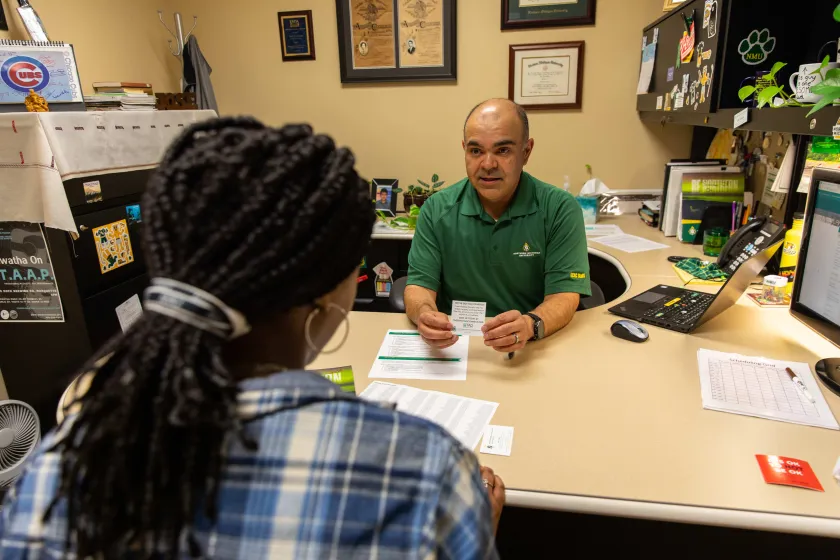As part of the Student Affairs and Success administrative pillar identified by President Brock Tessman during his convocation, Northern Michigan University has revised its advising structure to better support the holistic needs of students throughout their time at the university. The goal is that most students will be assigned a dedicated adviser in the relevant program cluster who will attend to their specific needs from their arrival on campus to graduation.
Staff members from the former Academic and Career Advisement Center, who provided first-year advising, have joined with the embedded student success specialists to form a single team of success advisers. All will be stationed in academic clusters across campus to provide knowledge and advice tailored to particular majors in close proximity to their classes and faculty.
“Part of President Tessman's directive was to limit the handoffs that used to occur between advisers so there is consistency for students,” said Neil Baumgartner, director of Student Success. “The new advising model allows us to meet students where they are and develop lasting relationships, which improves our ability to provide developmentally appropriate and individualized advising throughout our students' journeys. Combined with faculty mentoring, this will allow us to best support our students in their pursuit of their academic, personal, and career development goals.
“President Tessman also wants to limit handoffs across student service departments so students aren't shuffled to other offices unnecessarily. We're working intentionally with other offices and departments to ensure our advisers are knowledgeable enough to answer basic questions about many different areas of a student's experience. If there's a simple financial aid question, for example, they could answer it or make a quick phone call rather than send the student somewhere else across campus to get help. We're not trying to replace offices or prevent students from going elsewhere. We're just trying to streamline efforts to answer their questions."
The program clusters under the new advising model are: Business, Math and Computing; Education, Leadership and Native Studies; Engineering and Applied Technology; Fine and Performing Arts; Health Sciences; Humanities; Natural and Physical Sciences; Social Sciences; and Exploring and Non-Degree. The latter will be handled by the central Student Success Office.
“Students who remain in the same major or who switch majors within a cluster will be able to keep the same adviser from the time they enter through completion,” Baumgartner said. “If students change majors outside of their cluster, they will be assigned a new adviser. If an undeclared student is interested in a particular area, say the sciences, but aren't sure which major to pursue, they are matched with an adviser in that cluster for more tailored major exploration and to get connected to faculty in their areas of interest. Students exploring different areas at once such as art, welding and communications, will go to the undeclared cluster.”
The restructuring applies only to on-campus undergraduates, not graduate or Global Campus students. Baumgartner said these changes in Northern's advising strategy are designed to improve persistence, retention and completion rates for all students, and to address persistent equity gaps in success rates.

